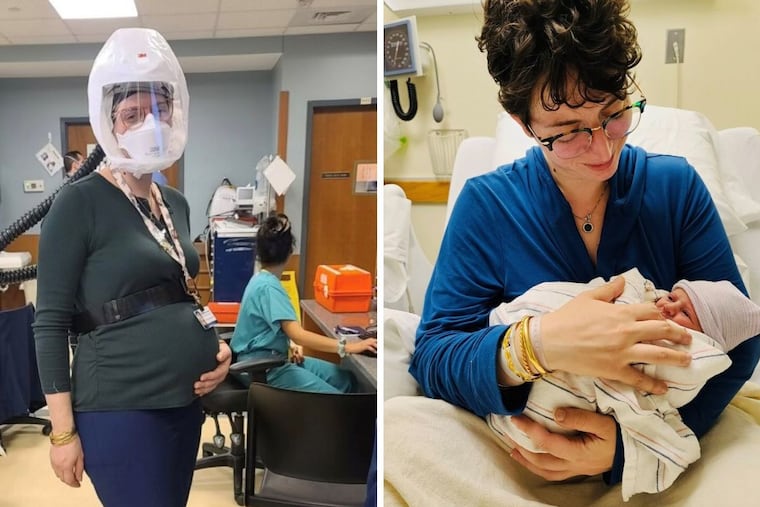Philly ER doctor: Omicron wave threatens to overpower exhausted health-care workers | Expert Opinion
Omicron isn’t mild for the U.S. health-care system.

There is a saying in emergency medicine: anyone, anything, anytime. We are the safety net of the health-care system, the first in line and sometimes the last resort.
Throughout the COVID-19 pandemic, I’ve been amazed by the resilience and dedication of my fellow health-care workers. We have had to reassess, reorganize, and recreate our emergency department to handle a new version of a disease we didn’t entirely understand, to make resources stretch just a little further. But the omicron wave is the first time I’ve felt in danger of being overwhelmed. For the U.S. health-care system, omicron isn’t mild.
Throughout the pandemic, we have handled surges, in both the number of patients and severity of illness. But coming on the heels of the delta wave and shared COVID-19 fatigue, this wave threatens to overpower exhausted health-care workers.
» READ MORE: One year on the front lines: Philly's essential workers check in
Unlike earlier in the pandemic, I am now a patient as well as a physician. At 39 weeks pregnant, I wonder each day if tomorrow will be worse. Is it as challenging in labor and delivery as it is here in the emergency room? When I deliver this baby, will there be enough nurses, a room for me, and a doctor to catch her? What if, God forbid, something happens and I need to go to the emergency room? Today I am the physician in triage, apologizing to sick patients for the long wait while trying to manage the waiting room. Tomorrow, could I be one of them?
Still, I am hopeful. Learning to manage a new disease has brought with it an unending firehose of new information. Every day new helpful data emerges, new papers are published, new announcements are made. Knowing everything I possibly can about this disease is the first step toward being able to manage it and fight back. There have been dazzling scientific advancements with new vaccines and new medications, and frequently changing guidance around their use, but one of the early lessons has stood the test of time: basic infection prevention tools do work.
Masks, personal protective equipment, clean ventilated air, access to testing, and quarantine and isolation protocols are the cornerstones of strategy to control any infectious disease. If I am seeing a patient who I think may have COVID-19, I follow our safety protocols. I wear an N95 mask, eye protection, a gown, and gloves. This protection has yet to fail me.
Isolation of those known to be ill is another tried and true tactic in infection control. Previously, these patients were isolated in certain areas of the ER. This meant when I wasn’t in their rooms, I could take off my mask, breathe, have a sip of water, and change into a surgical mask for a while. I could trust our safety protocols.
But when I go to work now, almost everything has changed. The hospital is full, so patients who are sick — with COVID-19 or with any other ailment — are waiting longer in the emergency room. Luckily, fewer COVID-19 patients are severely ill compared with previous waves, but many still are, and they arrive in an unending stream.
So now my N95 never comes off, not even to take a sip of water. Now, texts are coming in about new infections — not just in patients but in my colleagues, too. We are the front line, and we want to provide every patient with timely, compassionate, and thorough care. Watching people in need of care wait for hours breaks us in a thousand tiny ways. We want to be there for our patients. We want to have the space, the time, and the resources, to protect not only them but also ourselves.
» READ MORE: COVID-19 surge has overwhelmed some Pa. hospitals — and now their workers are getting sick, too
And, more than anything, I’ve wanted to protect this baby. I’ve carried her through this surge, and as I come into the hospital to deliver her, I look forward to her life on the other side of this incredibly challenging period. I remain hopeful for better days ahead.
Efrat R. Kean is an emergency medicine physician at Thomas Jefferson University Hospital in Philadelphia. She has most recently been leading Jefferson Health’s COVID-19 Rapid Response Teams as part of Pennsylvania’s Regional Congregate Care Assistance Teams.
Editor’s note: Dr. Kean delivered a healthy baby girl just prior to the publication of this piece.